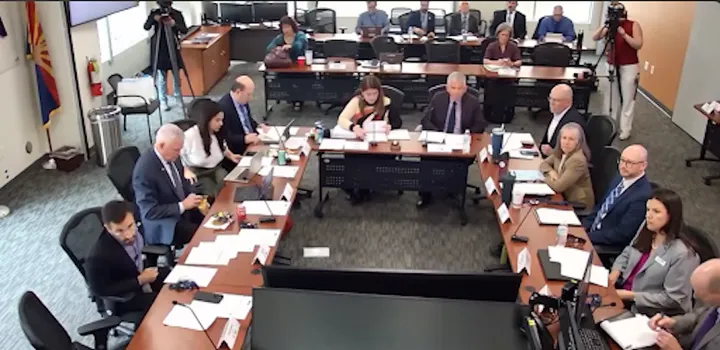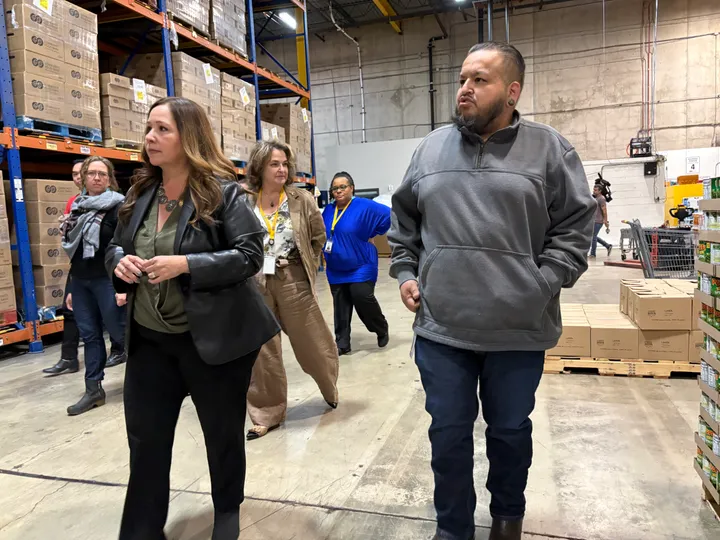Marana residents push back on possible ICE detention center
Local officials and residents are raising concerns after a private prison company repurchased the shuttered Marana correctional facility, fearing it could be converted into an immigration detention center.
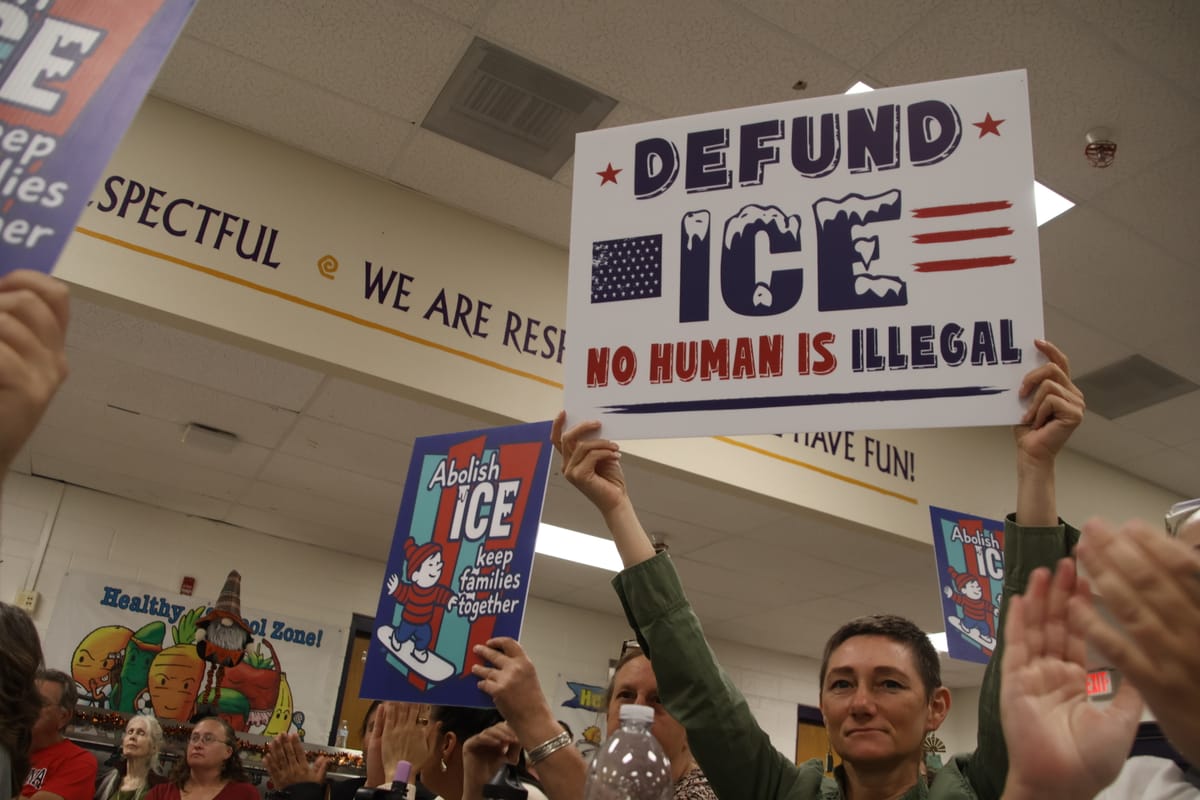
Just outside Marana Regional Airport, an empty prison once run by the state is drawing new scrutiny.
Utah-based Management and Training Corp. bought back the shuttered Marana Community Correctional Treatment Facility from the state for $15 million in July, and now residents and local officials fear the site could soon reopen as a federal immigration detention center.
The facility closed in late 2023. Although there has been no confirmation on how MTC plans to use the property, it’s speculated that the former minimum-custody prison could be converted into an Immigration and Customs Enforcement detention center.
MTC operates five detention centers in California, New Mexico and Texas that are used by ICE. It previously owned the Marana facility and another in Kingman. In 2015, a series of riots at the Kingman facility injured several officers and inmates and left the prison so damaged it became uninhabitable.
Then-Gov. Doug Ducey canceled MTC’s contract for the Kingman facility after reports found that poor prison conditions and excessive use of force from staff had contributed to the unrest.
Gov. Katie Hobbs canceled MTC’s Marana contract in December 2023, citing low inmate populations that could have cost taxpayers up to $15 million if the facility remained open.

District 3 Supervisor Jennifer Allen hosted a panel earlier this month to address questions and concerns from constituents, with hundreds of people turning out for the event.
“There is $35 billion coming from the Trump administration to invest just in immigrant detention expansion,” Allen said. “We have also heard from the secretary of Homeland Security that there is a push for about 1,200 more detention beds in Arizona, and we've seen lists that have named both the Maricopa County Jail and the Marana prison as being the sites where they intend to expand their immigrant detention capacity.”
Allen said the private prison company has not been fully transparent with the county, leaving many questions unanswered.
“Big projects like this, the elected officials of that region, we normally hear from companies that have plans to do something, and we have heard nothing,” Allen said.
 Tucson Spotlight
Tucson Spotlight
Marana Town Councilman Patrick Cavanaugh said the town’s inquiries to MTC have also gone unanswered.
“They're not really communicating that well; they're being quiet about it,” Cavanaugh said.
He also expressed concern that MTC’s contract with the federal government could bring increased immigration enforcement.
“These are our neighbors,” he said. “I see a lot of farmworkers out there working in the fields; they don’t even want to go to Safeway because they're afraid they're going to get picked up.”
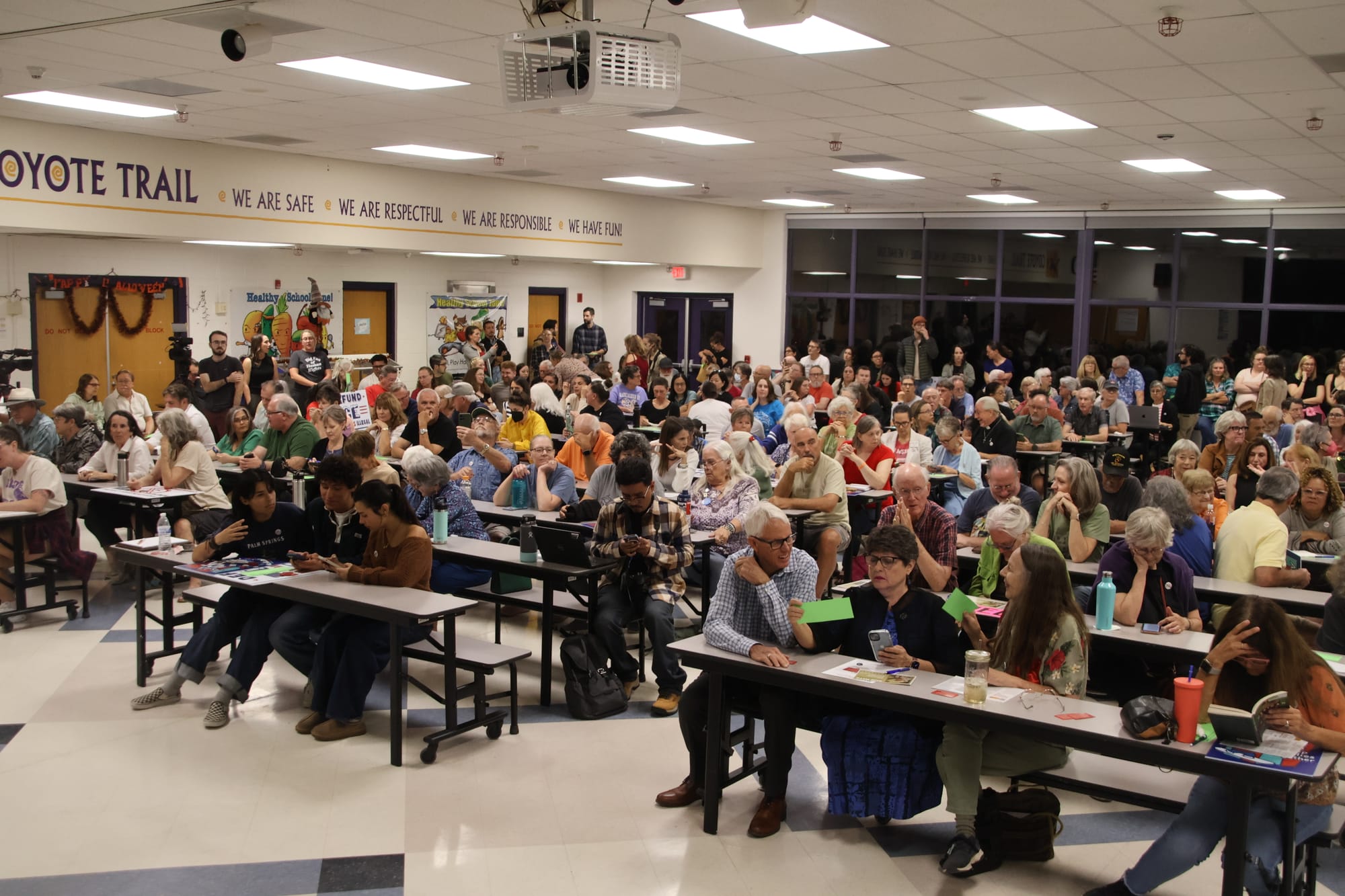
Marana Town Councilman Patrick Cavanaugh said at the event that the town’s inquiries to MTC have gone unanswered. Topacio "Topaz" Servellon / Tucson Spotlight.
While little is known about the project, Allen said it’s better to start discussions early “rather than trying to catch up later.”
“I don't want to see us disgraced by having (this) in our town,” said Sue Ritz, a candidate for Marana Town Council and Arizona National Guard veteran. “They're human beings and they have due process rights. Picking people up off the street without any warrants, without any criminal record — that is un-American.”
Matthew Rohen-Trapp, a recent Marana High School graduate and town council candidate, echoed Ritz’s concerns.
“I've lived here my whole life, and one of my favorite parts about the community is how welcoming and supportive it has been,” Rohen-Trapp said. “Introducing a detention center like this goes completely against the ideals and traditions of the community that I have grown to love. These are people with family and friends much like the rest of us have — these are not just numbers.”
Panelists included local immigration attorney Mo Goldman; Just Communities Arizona Director Caroline Isaacs; Liz Casey, a social worker with the Florence Immigrant and Refugee Rights Project; and Noah Schram, an immigrants' rights and border policy strategist at the ACLU of Arizona.
“Generally, (companies) are sensitive to local opposition, especially when it comes to larger corporations. They can just go to some other town,” Isaacs said. “MTC is strange because we don't have shareholders that we can pressure. They don't have the same kind of corporate considerations about things like perception in the community.”
Just Communities Arizona, a nonprofit focused on criminal justice reform, encouraged residents to contact MTC and their elected officials to express opposition.
“The best thing to do is build clear public opposition. Make it clear not only to MTC but also to your local elected representatives,” Isaacs said.
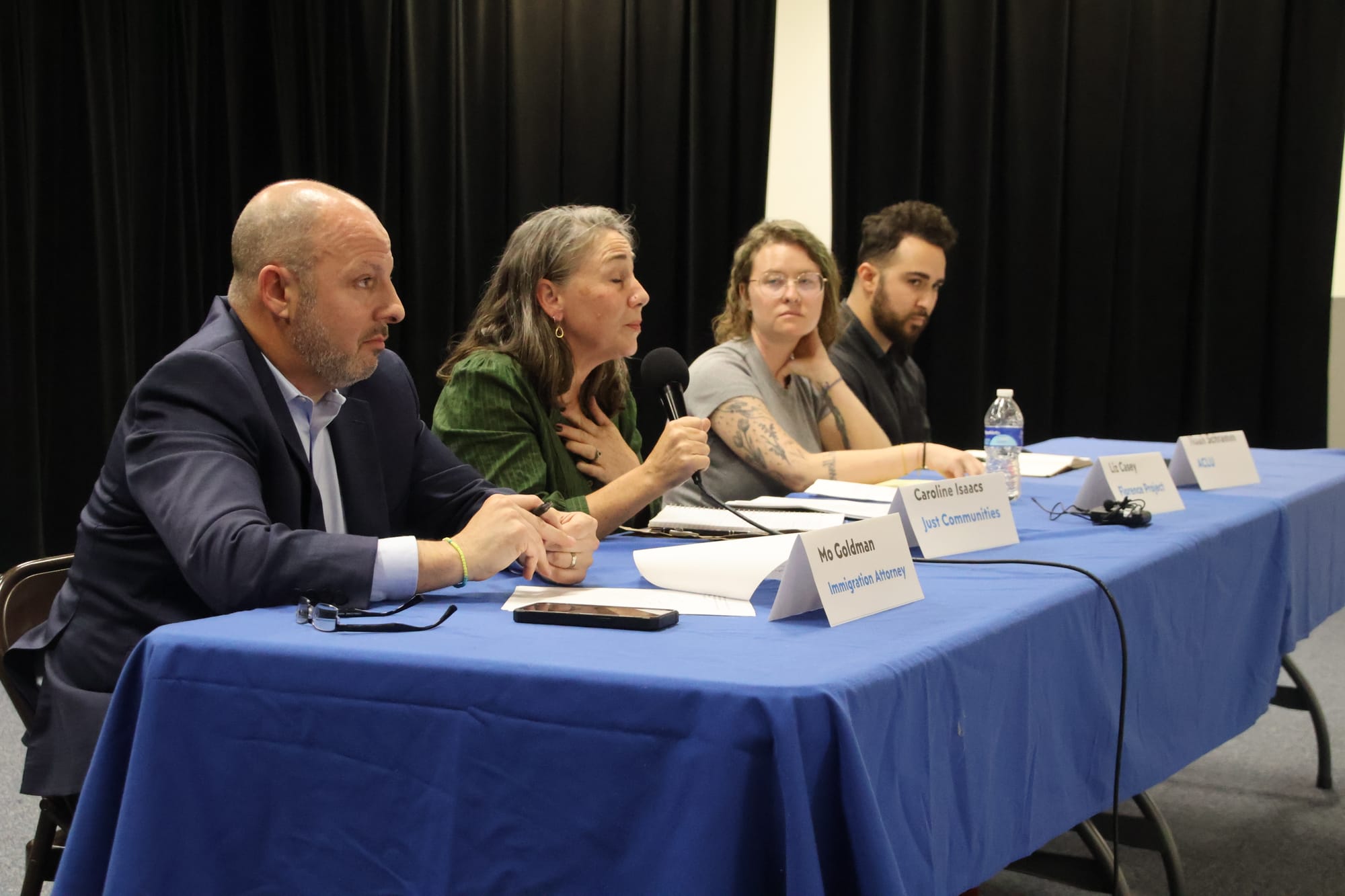
One attendee asked whether an ICE facility would increase local immigration arrests.
In June, the White House directed ICE to make 3,000 arrests per day, up from the previous daily average of about 1,000.
While Casey could not specify how much ICE activity might increase, she noted that internal detention quotas would still need to be met.
“If they want to increase the number of beds, if there's a minimum number of people that they have to detain, they will fill it,” Casey said. “If that means filling it with people from the neighborhood, that potentially could happen.”
Some attendees voiced concerns about oversight, given MTC’s history in Arizona.
“Because this is a federal facility, there are very few avenues for oversight or reporting of issues,” Isaacs said. “My understanding is that even the Attorney General's Office does not have jurisdiction to investigate the facilities.”
In 2010, three prisoners escaped from MTC’s Kingman facility. It took the facility more than an hour to notify the Mohave County Sheriff’s Office that the men were at large, and residents were not publicly alerted until the following day. The escapees later murdered an elderly couple while on the run.
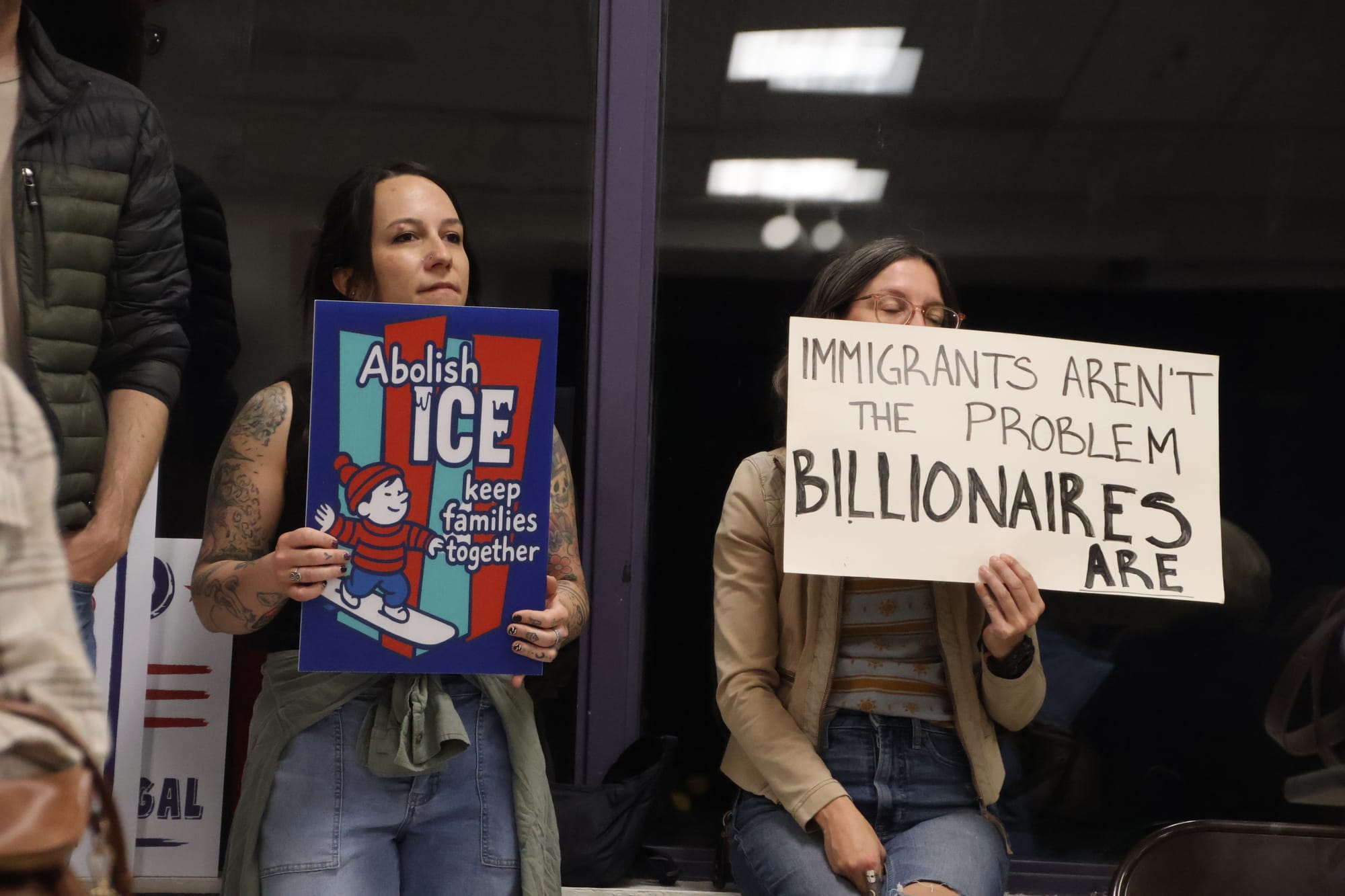
As a result, the state conducted an audit at MTC’s Marana Prison, finding broken security cameras, unsecured doors and windows, and malfunctioning control-room panels. A follow-up seven months later revealed that none of the problems had been fixed.
“Some elected officials have gone into Eloy. These facilities are requiring advanced notice of their visits. Congressional offices are supposed to be able to do unannounced visits into the federal facilities, and even here, they're not being allowed to do that.”
In addition to asking questions, community members shared personal perspectives.
Joanna Ryan, an Army veteran who spent a decade working for the Federal Bureau of Prisons, described witnessing violence and poor living conditions that harmed both detainees and staff.
“Many of these are one-sided issues, or thought to just impact the detainees themselves. However, these conditions come around even to the workers,” Ryan said.
MTC has previously faced labor-related lawsuits. In 2020, 122 detention officers in New Mexico sued the company for failing to pay for job activities considered compensable work.
MTC’s Marana Prison had a staff turnover rate of 56.8% in 2011, according to the Arizona Department of Corrections, which also found that the company provided just two hours of staff training instead of the department’s required eight hours.
“A lot of people are very aware of due process being part of our Constitution,” Ryan said. “As a veteran and somebody who's taken that oath several times in my life, I think the Constitution is what I hold to. My experience of seeing the injustices of people — yes, those who have possibly committed crimes — but the human element of that is treating people humanely. That's the biggest part.”
Topacio “Topaz” Servellon is a reporter with Tucson Spotlight. Contact them at topacioserve@gmail.com.
Tucson Spotlight is a community-based newsroom that provides paid opportunities for students and rising journalists in Southern Arizona. Please consider supporting our work with a tax-deductible donation.

